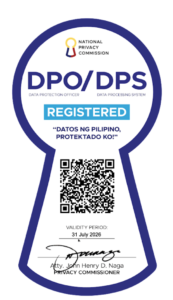5 Tips To Stay Positive While Working From Home

The pandemic has impacted our everyday lives significantly, specifically with the transition to working from home. While there’s no denying the many benefits of remote work—avoiding heavy traffic, wearing cozy clothes all day, and being with your family—it also brings several challenges.
When you work from home, the lines between personal and professional life may blur, leaving you feeling as if you’re never truly in either space. Add the uncertainty of a global health pandemic, the loss of social connection, and the need to care for your children throughout the day, and you’ve got a recipe for stress.
Here are some steps you can take to avoid stress and stay positive while working from home.
Maintain a Daily Routine
Maintaining a regular morning routine and a fixed wake-up time helps organize your day and places you in the right frame of mind. Setting up a designated workspace allows you to “escape” to another part of your home to unwind during breaks and after shift hours. Stick to set work hours and limit any professional responsibilities that may bleed into your personal time.
It’s also important to plan holistically when you’re juggling work and family life. Establish a schedule and rhythm with your family to strike a reasonable balance between home and work demands. Determine the best times to work on critical projects or take conference calls. If your employer is open to flexible schedules, discuss the possibility of rearranging your schedule to give you more flexibility.
Take Breaks
With a comfortable home office and extra time saved on commuting, you may have a natural inclination to maximize your productivity. However, working for hours on end can leave you mentally and emotionally exhausted.
Endless video meetings can result in Zoom fatigue. Sitting for extended periods can wreak havoc on your posture and raise your risk of developing chronic health problems.
Don’t think you’re obligated to stay glued to your desk simply because you are at home. Schedule regular breaks throughout the day and, rather than scrolling through social media, take a stroll outside and get some fresh air to help you shake off stress and reset.
Stay Connected with Family and Friends
Before the pandemic, stepping out of the house was one of the best ways for remote professionals to unwind and maintain social connections. Meeting up with friends for coffee or lunch, registering for an in-person class, or networking with other professionals helped remote employees retain their social networks even when they are not working on-site.
These days, despite COVID’s impact on face-to-face interactions, it’s important to make a conscious effort to stay in touch with loved ones. Engage in virtual events that will rekindle your creativity, join remote book clubs, host an online game night, or get together with your friends and colleagues for a virtual happy hour.
Get Moving
Incorporating physical activity into your daily routine is an excellent strategy for reducing stress. Exercise keeps the mind sharp and alert, and it also helps the brain grow. A short stroll or a bike ride can help you feel energized throughout the day.
Instead of lying in bed and watching Netflix between meetings, use your breaks to go up or down the stairs or jog around the house. Rather than sitting in front of your screen for the next conference call, offer to host a walking meeting. Getting some fresh air while walking is an excellent way to get your blood pumping, boost your energy levels, increase your productivity, and improve your overall well-being.
Unplug After Work
While remote work gives you more flexibility and freedom, it can also make disconnecting exceedingly challenging. Many people feel the strain of keeping up with increasing workloads and spend their days glued to their laptops, tablets, and smartphones. This “always-on” culture does not improve productivity and performance but instead contributes to employee stress.
Unplug—turn off your work devices after your workday, on weekends, and enjoy your time off. Resist the urge to check your email after hours, and consider limiting your daily consumption of social media and online news. Maintaining a healthy work-life balance is critical for your mental health and well-being.
Conclusion
Working from home has several advantages, and there are many ways to stay both productive and positive. Prioritizing your well-being and practicing self-care will help you personally and professionally. Sleep well, meditate, practice mindfulness, and set clear boundaries between work and personal life. Establish a healthy daily routine, stay connected with loved ones, exercise, and spend some time outdoors.
With the pandemic winding down and many businesses adopting a hybrid work model, it’s also a great time to consider flexible workspace solutions with ARCH Offices. If you’re looking for dynamic co-working spaces or meeting rooms designed to help prevent WFH stress while bolstering your team’s creativity, get in touch with us!
Discover more about outsourcing and
how you can maximize it for your
business success!
Get a copy of our E-book: Guide to Outsourcing.




